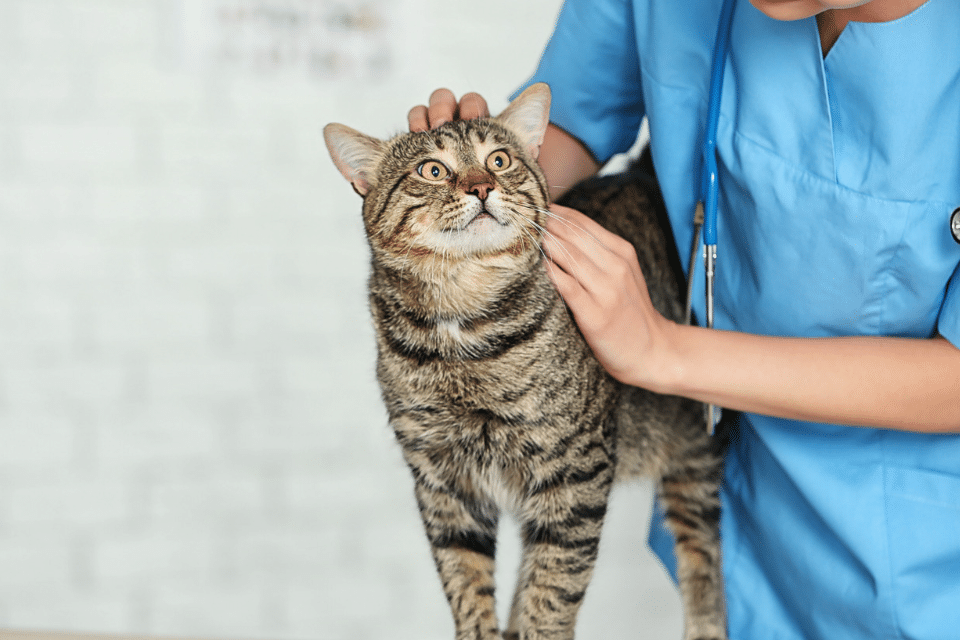
Many people take their car for spring and fall tune-ups, but autumn is also a great time to schedule a check-up for your furry friend, especially if they’re over the age of ten. Most veterinarians recommend annual check-ups for non-senior pets and biannual check-ups for pets considered senior.* (The age that a pet is considered older varies by species and even by breed.) I’ve found that spring and fall are great times to schedule an all around check-ups for senior pets. My “junior” pets have their check-ups each spring so that their shots will be up-to-date before summer travel and to make sure they’re ready for the challenge of summer adventures like hiking and trips to the beach.
Just like humans, pets tend to need a little extra TLC as they age and screening can help catch issues before they become life-threatening problems. There are simple blood and lab tests that your vet can run to detect issues that are more common in older pets chronic kidney disease, hyperthyroidism, hypertension, and diabetes. Diagnosing problems like arthritis and cognitive disorders can be a bit more difficult, but there are still signs you and your vet can look for and discuss during biannual check-ups. The important thing is to be aware of your pet’s general health and behavior and to always report any changes to your vet immediately.
In addition to standard senior pet blood work and screening that your vet offers, you’ll also want to discuss any changes in your pet’s day-to-day habits, mobility, appetite/thirst, and even attitude. A grumpy pet can indicate health issues as can aggression toward other pets. For example, dogs and cats with arthritis may feel threatened when they can’t jump away from another pet quickly and growl or may hiss or growl when getting up because of pain. Your vet doesn’t see your pet every day, but you do. So you’re in the best position to let him or her know how your pet feels. The information you give your vet can be added to their general physical examination to create an overall snapshot of your pet’s general health.
In addition to a quick look “under the hood,” your pet’s senior examination should also include:
· A Complete Blood Count (CBC)
· A Chemistry Screening and Urinalysis
· A Thyroid Hormone Screening
· And Blood pressure
Your vet will also likely discuss nutrition for older pets who need less calories and may need special diets due to conditions like arthritis or
Some general signs of possible health issues that you may want to look for in your senior pet and discuss with your vet are:
· Changes in appetite or water consumption
· Changes in personality/aggression
· Increased urination or urination outside the litter box
· Coughing/Wheezing
· General Fatigue
· Confusion
· Weight loss or gain
As your pet ages, it may seem like he or she is slowing down a bit, but that’s completely normal. But pets are living longer than ever, and byy taking your senior pet in for biannual screenings and keeping close tabs on small changes that could signal bigger issues, you’ll helping to ensure that you and your furry friend will be together for many years to come.





